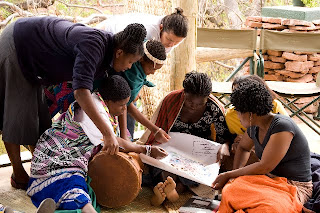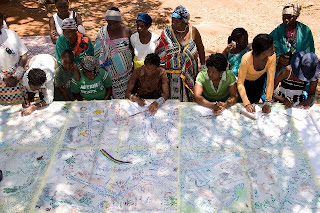 Biocultural Diversity Conservation:
Biocultural Diversity Conservation:A Global Sourcebook
By Luisa Maffi and Ellen Woodley
Publication date: 19th February 2010
'All of the world's cultures are utterly dependent upon the biodiversity among which they live. Each culture has developed ways of adapting to their biodiversity, drawing on nature for goods, services, inspiration, mythology, and much else besides. Biocultural Diversity Conservation is a treasure trove of the many approaches that have been taken by the world's diverse cultures to maintain the biological systems upon which they depend. This invaluable resource will certainly find great utility in all parts of the world and among many disciplines. '
Jeffrey A. McNeely, Senior Science Advisor, IUCN
'Here is a treasure trove of a book, one that will truly make a difference in the world. It represents a key milestone in our global understanding of the profound and inextricable links between cultural and biological diversity. Written by two of the leading lights in this new and growing field, it is filled with important information, case studies and analyses on a global scale.'
Nancy J. Turner, University of Victoria, Canada
'At long last: an authoritative guide to biocultural conservation. This is a splendid illumination of the intermingled diversity of culture and nature ... revealing and revolutionary.'
Thomas E. Lovejoy, Biodiversity Chair, The Heinz Center for Science, Economics and the Environment, USA
The field of biocultural diversity is emerging as a dynamic, integrative approach to understanding the links between nature and culture and the interrelationships between humans and the environment at scales from the global to the local. Its multifaceted contributions have ranged from theoretical elaborations, to mappings of the overlapping distributions of biological and cultural diversity, to the development of indicators as tools to measure, assess, and monitor the state and trends of biocultural diversity, to on-the-ground implementation in field projects.
This book is a unique compendium and analysis of projects from all around the world that take an integrated biocultural approach to sustaining cultures and biodiversity. The 45 projects reviewed exemplify a new focus in conservation: this is based on the emerging realization that protecting and restoring biodiversity and maintaining and revitalizing cultural diversity and cultural vitality are intimately, indeed inextricably, interrelated.


